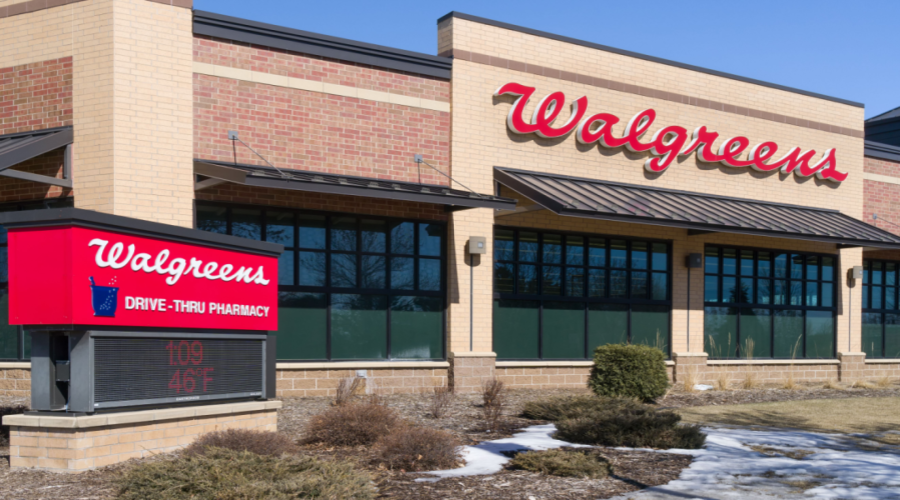A hearing titled, “The Role of Pharmacy Benefit Managers in Prescription Drug Markets Part III: Transparency and Accountability,” was held by the House Committee on Oversight and Accountability on July 23. Pharmacy Benefit Manager (PBM) chief executives were pressed on their role in rising prescriptions drug costs and for collaborating to push deliberate, anticompetitive policies that weaken local pharmacies.
While the leaders of the three largest PBMs in the nation—CVS Caremark, UnitedHealth Group’s Optum Rx, and Cigna’s Express Scripts—say they’re working diligently to keep prescription drugs affordable for Americans, many of the House Committee on Oversight and Accountability members don’t believe it.
PBMs are supposed to negotiate lower drug prices with pharmaceutical managers on behalf of insurers and employers, along with reimbursing pharmacies for dispensing prescriptions. But according to Committee Chair Rep. James Comer (R-Kentucky), it’s not happening.
The PBMs say they lower drug costs for their clients, but more and more people are outraged over their dishonest business practices. In fact, in a recent survey by KFF, a non-profit health policy research, polling, and news organization, about one-third of respondents reported that they did not take needed medication due to high costs.
Not only are PBMs facing numerous lawsuits from state attorneys general and independent pharmacies, they’re also feeling pressure from the federal government. Reportedly, the Federal Trade Commission is planning to sue CVS Caremark, Express Scripts, and Optum Rx because of how they negotiate drugs with pharmaceutical manufacturers.
While PBMs argue that their large size would help increase patient access while decreasing prescription drug costs, the opposite has happened. Patients are dealing with significantly higher costs with very few choices and worse care.
As if this isn’t enough, PBMs steer patients to mail-order pharmacies they own. Then they choose the more expensive, brand-name medications that result in higher rebates that drugmakers pay them. The House committee report found 300 examples of the three PBMs selecting medications that cost at least $500 more per claim than a safe alternative medication.
To avoid transparency and proposed reforms, PBMs have also been creating foreign corporations and have moved certain operations overseas. They’ve even created group purchasing organizations (GPOs) to centralize the negotiation of rebates and fees in Ireland and Switzerland. They have also built companies in Ireland and the Cayman Islands to manufacture and market specific, highly profitable generics and biosimilars.
Representatives called for PBM reform during the hearing. And while Congress seemed ready to take up the issue in recent months and even introduced several bills last year tackling the issue, lawmakers haven’t yet acted.
The most recent step taken was in February by the House Oversight Committee. The committee advanced bipartisan legislation to require the PBMs to unlink the fees they charge insurers from the price of drugs, among other changes.
Your legislators need to know the urgency of PBM reform for community pharmacies and their patients. It’s critical that you continue engaging them. Let Congress know how the costs of medications continue to rise, and that decisive action is needed in order to protect patients, taxpayers, and small community pharmacies.
Committee Chair Rep. James Comer (R-Kentucky) opened the hearing on July 23 with a list of problematic practices:
- PBMs share patient information and data to steer patients to PBM-owned pharmacies.
- PBMs tout savings to payers and patients, but their drug utilization and spread pricing increase costs.
- PBMs force drug manufacturers to pay rebates to be placed on favorable tiers of PBM drug formularies, making it difficult for competing generics or biosimilars to get on the formularies.
- PBMs have begun creating foreign corporate entities and moving operations abroad to avoid transparency and state and federal reforms.
(Source: medicaleconomics.com)
National Consumer Survey
According to a national survey released in 2021 by the National Community Pharmacists Association, a large majority of American adults prefer getting their prescriptions drugs from a local pharmacist rather than a mail-order service. The reason? Because of the personal relationship with their pharmacist.
A national survey of 1,390 adults by Public Policy Polling found:
- 85 percent prefer getting their prescription drugs from a local pharmacist instead of mail order.
- 36 percent said their pharmacist knows them better than a mail-order company.
- 32 percent said their pharmacist answers questions and provides counsel on how to use the drugs.
- 15 percent worry their drugs will get lost in the mail, exposed to the elements, or stolen.
(Source: ncpa.org)
Call or email your legislators and urge them to take immediate action on PBM reform by visiting these links:
- org/legislative-action-center
- org/finishthefight
Invite your patients to contact their legislators to urge them to pass robust PBM reform fight back against corporate middlemen that threaten you and your pharmacy:
- org/action-center
You know the frustration of insurance companies and PBMs steering patients away from your pharmacy to the large retail chains or mail order. Your patients feel it, too, as PBMs try to drive them away from the pharmacy they know and love. This is why it’s so important to help your patients fight back against unfair insurance and PBM practices. Download and print the two links below from NCPA, and hand them out to your patients. These free resources will help them fight back against PBMs interfering with access to the pharmacy of their choice.
- org/sites/default/files/2021-03/Patient-Steering-Bag-stuffer.pdf
- org/sites/default/files/2021-03/Patient-Steering-one-pager-pamphlet.pdf
More articles from the September 2024 issue:
- Cybersecurity in Your Pharmacy
- Diagnosing Alzheimer’s Disease
- Patient Medication Reviews
- A New Direction for Continuous Glucose Monitors
- The Prevalence of Osteoarthritis
- Vaccine Overview 2024-25
- Peripheral Artery Disease
- PBMs Exposed
A Member-Owned Company Serving Independent Pharmacies
PBA Health is dedicated to helping independent pharmacies reach their full potential on the buy-side of their business. Founded and run by pharmacists, PBA Health serves independent pharmacies with group purchasing services, wholesaler contract negotiations, proprietary purchasing tools, and more.
An HDA member, PBA Health operates its own NABP-accredited warehouse with more than 6,000 SKUs, including brands, generics, narcotics CII-CV, cold-storage products, and over-the-counter (OTC) products — offering the lowest prices in the secondary market.












